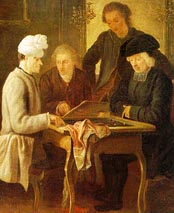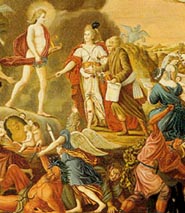Highlands Ranch High School - Mr. Sedivy
Highlands Ranch, Colorado
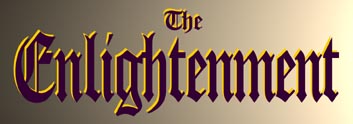
-
World History -
The Enlightenment, Age of Reason
The Enlightenment
The Enlightenment was an intellectual movement that
took place from the 1600s to 1789, the French Revolution. The center
of this movement was France. The most notable group of men was called
"philosophes."
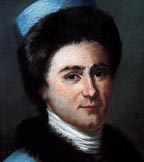
Jean Jacques Rosseau, 1712
- 1778
General Characteristics of the Movement
 Held reason as the basis of their thinking. Attacked superstition,
ignorance, and easy acceptance of authority.
Held reason as the basis of their thinking. Attacked superstition,
ignorance, and easy acceptance of authority.
 Used the scientific method.
Used the scientific method.
 Since Newton had proved that the universe worked in certain laws,
shouldn't man, society, government, and education work in laws,
too?
Since Newton had proved that the universe worked in certain laws,
shouldn't man, society, government, and education work in laws,
too?
 Scientific Revolution had demolished old ideas. People looked at
the world in a scientific way and everything was / is controlled
by natural laws.
Scientific Revolution had demolished old ideas. People looked at
the world in a scientific way and everything was / is controlled
by natural laws.
 A new idea of man, guided by natural laws, had to come about - a
paradigm shift. Since people (as evidenced by the cultures the explorers
found) were not all alike, coming up with a consistent view of man
was difficult.
A new idea of man, guided by natural laws, had to come about - a
paradigm shift. Since people (as evidenced by the cultures the explorers
found) were not all alike, coming up with a consistent view of man
was difficult.
Approach of 18th-Century Philosophies
Everyone, since they are human, is the same. Everyone
has the same features - different cultures were secondary to this.
They tried to figure out what happened before: families, governments,
customs, etc. - The Noble Savage Concept. (Turned out that the "Noble
Savage" didn't exist).
Man in the State of Nature
Humans were completely free, answering to their own needs. They
were not bound to family, society, or government. People spent their
time acquiring property to meet their needs. This was not easy.
"Life was nasty, brutish, and short," said Hobbes. When things got
nasty (if two people wanted the same thing, it could get ugly) they
entered into a social contract: entering society, giving up some
freedoms in exchange for protection of life and property.
Most thinkers thought the fewer the rules, the better.
Protect life and property, but leave natural freedoms intact. There
were arguments about government Voltaire and Hobbes wanted absolute
monarchy. Rosseau wanted Democracy. Montesquieu, Jefferson, and
Locke wanted separation of power and constitutional checks on the
monarchy.

John Locke (1632 - 1704)
Locke
Locke believed that property was very important. Since property
was legitimate, government was legitimate, too. The people had a
right to property, to government, and to revolution. The people
had a right to legitimate government, and the king must provide
it, lest he be legitimately overthrown. Even Locke was worried about
his ideas about the peoples' right to overthrow their government.
He remained in Holland for ten years, keeping his work unpublished.
Locke returned after the Glorious Revolution (on the same ship Queen
Mary returned on) and published his works.
Simplicity and Social Restraint
These rules of simplicity and social restraint applied to other
aspects of human society. Emotionalism and theatricality were out;
human reason, simplicity, and intellectual restraint were in.
 Art. Art became more refined.
Art. Art became more refined.
 Literature. The fluid oratory of Shakespeare was replaced by simple
clarity.
Literature. The fluid oratory of Shakespeare was replaced by simple
clarity.
 Religion. People were suspicious of religion. They were impressed
by findings in science, many philosophies argued for atheism or
deism. Deism is the belief that God was a Great Clock Maker, who,
after creating the world according to natural laws, sat back and
watched it run according to natural laws.
Religion. People were suspicious of religion. They were impressed
by findings in science, many philosophies argued for atheism or
deism. Deism is the belief that God was a Great Clock Maker, who,
after creating the world according to natural laws, sat back and
watched it run according to natural laws.

David Hume 1711 - 1776
|

Immanuel Kant 1724 - 1804
|
 Education. Before the Enlightenment students were seen as sinful,
arrogant, and indifferent to self-improvement. Education was tough
- lots of punishment, uncomfortable benches, etc. During the Enlightenment,
people thought education should be built around a child's development
(emotional, physical, and intellectual) and that the primary curriculum
should come from nature.
Education. Before the Enlightenment students were seen as sinful,
arrogant, and indifferent to self-improvement. Education was tough
- lots of punishment, uncomfortable benches, etc. During the Enlightenment,
people thought education should be built around a child's development
(emotional, physical, and intellectual) and that the primary curriculum
should come from nature.
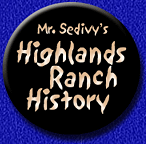

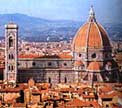

![]() 9375 South Cresthill Lane
9375 South Cresthill Lane ![]() Highlands Ranch, Colorado 80126
Highlands Ranch, Colorado 80126 ![]() 303-471-7000
303-471-7000





